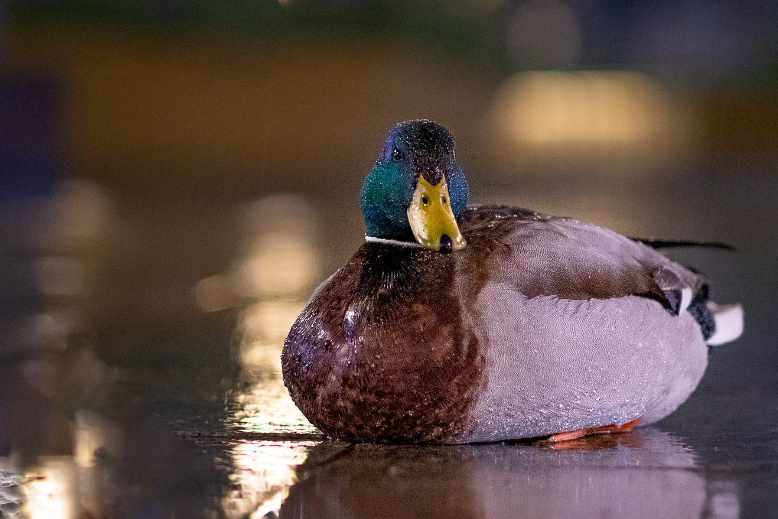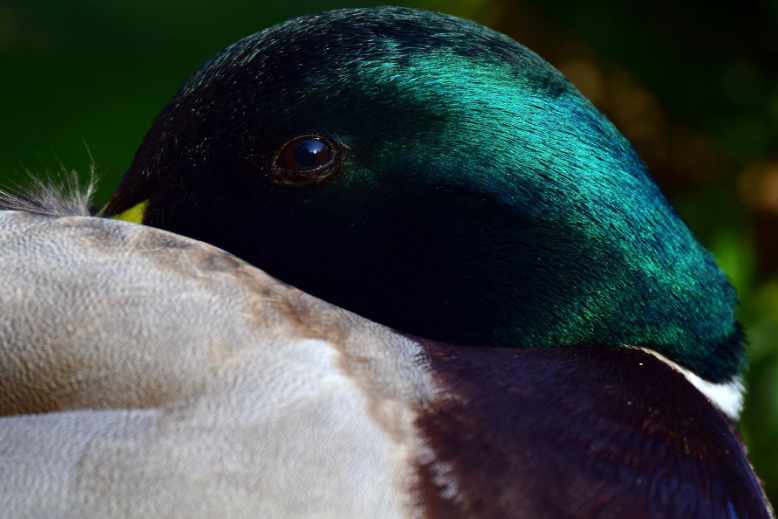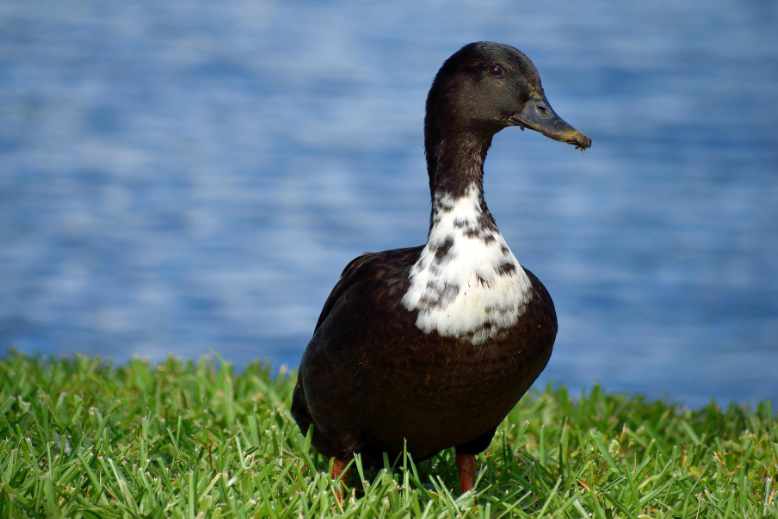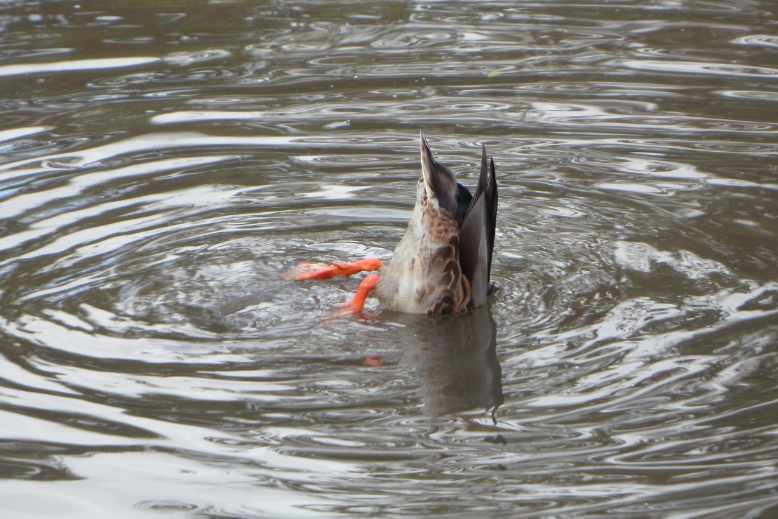Can ducks see in the dark? Are they colourblind? Even though ducks have better vision than humans, they cannot see in the dark. These waterfowls have terrible night vision, which is why they are usually preyed upon at dusk.

There is a lot of debate surrounding whether or not ducks can see in the dark. Some people say that their eyesight is so good that they can even see in complete darkness! Others claim that ducks are actually colourblind and can’t see anything in the dark. So, what’s the truth? In this blog post, we will explore the evidence for and against duck vision in low-light conditions and try to answer the question once and for all!
Can ducks see in the dark?
Ducks have many unique adaptations that help them to survive in their natural environment. One of these adaptations is their vision. Some experts believe that ducks cannot see in the dark at all, while others believe that they may have limited night vision. Though the jury is still out on this question, one thing is for sure. Ducks have excellent day vision, allowing them to spot potential predators and avoid becoming prey. But does this vision extends to low-light conditions?

While ducks do have some sort of night vision, they do not see in complete darkness. Instead, their eyes are adapted to take advantage of any available light, whether it is moonlight, starlight, or even the light from a campfire. This allows them to remain active after dusk and to find their way back to their roosts in the dark. In addition, ducks also have a reflective layer at the back of their eyeballs, which helps to bounce light back into their eyes and improve their vision even further. As a result, while ducks may not be able to see in pitch-blackness, they can still make the most of dim lighting conditions.
So, what does this all mean? Can ducks see in the dark or not? The answer is probably somewhere in the middle. They may be able to see some shapes and contrasts, and their vision is significantly impaired in low-light conditions.
Are ducks colourblind?
No! Contrary to popular belief, these waterfowls are not colour blind. In fact, they can perceive colours much more vibrantly than humans.
Recent research has shown that ducks can actually see a wide range of colours. Ducks have tetra chromatic vision and a four-dimensional colour vision, which allows them to see blue, red, yellow, and green light more vibrantly.
In addition, ducks also have a type of pigment called retinal ganglion cells, which helps them to see UV light. This gives ducks the ability to see a range of colours that we cannot even perceive. While ducks may not see colours the same way we do, their ability to see UV light gives them an uncanny ability to find food and avoid predators. As a result, ducks can thrive in a wide variety of environments.
Can ducks see forward?
Ducks have excellent vision, and they are able to see both in the water and on land. Their eyes are specially adapted to help them see underwater. On the ground, ducks can see forward and to the side simultaneously. This allows them to keep an eye out for predators while they are eating or walking.
Unlike humans, who have forward-facing eyes, ducks have eyes that are positioned on the sides of their heads. This gives them a nearly 360-degree field of view, which is ideal for spotting predators and other threats. However, this broad field of vision comes at the expense of depth perception. For this reason, ducks are not able to judge distances very well, and some objects may seem blurry to them. Nevertheless, their keen sense of hearing and ability to see in all directions makes up for their lack of depth perception.

Can ducks see pink?
The short answer is yes, ducks can see pink. In fact, they can see a number of colours, including some that humans cannot.
It’s a commonly held belief that ducks can’t see the colour pink. After all, they’re frequently associated with the colour yellow, and it’s widely accepted that birds can only see a limited number of colours. However, recent studies suggest that ducks may, in fact, be able to see pink. A study found that ducks have four types of photoreceptors in their eyes, which allows them to see a wide range of colours, including pink. This is a significant finding, as it challenges our previous understanding of the avian vision. Other bird species may also be able to see colours that we previously thought they couldn’t.
Do ducks have 360 vision?
Ducks are one of the few creatures gifted with 360-degree vision. They can see in all directions at the same time, thanks to their eyes, which are located on the sides of their heads. This gives them a wide field of view, but it also makes it difficult for them to focus on objects that are close by. Instead, ducks rely on their sense of hearing and smell to help them find food and avoid predators. While 360-degree vision may not be essential for every animal, it certainly comes in handy for ducks!
Can ducks see underwater?
Ducks are aquatic birds, meaning they spend much time in the water. But can they see underwater?
When it comes to seeing underwater, ducks have it all over humans. That’s because ducks have particular adaptations that allow them to see clearly, even in murky ponds.
For starters, ducks have a nictitating membrane, or third eyelid, that protects their eyes from the water. In addition, the lenses of their eyes are elliptical, which gives them excellent underwater vision. And finally, ducks have adaptations that allow them to produce more tears, which help to keep their eyes clean and clear.
So the next time you see a duck paddling around in a pond, remember that it has a keen eye for spotting fish and other underwater prey.

Do ducks need a light at night?
If you’ve ever had ducks as pets, you know that they’re Entertainment Central. From their silly waddles to their adorable quacks, they never fail to bring a smile to your face. But do these feathered creatures need a bit of light at night?
While ducks are not nocturnal creatures, they do sleep with one eye open and can be pretty active at night, especially if there is a light source. Light at night can help ducks to stay warm and dry, as well as avoid predators. Nevertheless, it can also mess up their biological clock as they may overfeed.
Can ducks see in the dark? Related questions.
- How do ducks find food in the dark?
By this point, we know that ducks are not equipped with excellent night vision. But that does not seem to affect their feeding habits. So how do ducks forage for food in the dark?
A duck’s vision is sharp enough to help these waterfowls find their way and food in normal conditions of relative darkness, but it is not because they have dark-adapted vision like, for example, cats and owls. When a duck is searching for food in darkness, which is a very common activity, it uses its beak to locate some delicious goodies to munch on.
A duck’s beak is covered with super sensitive skin, which allows it to feel things, similar to the hands of us humans. Therefore, ducks can sense food in the dark or underwater without needing to see it.
- What do ducks do at night?
Like most living beings, nighttime is the perfect time for a duck to rest and have some shuteye. Ducks prefer to stay active during the day to forage for food, using their brains and energy to the fullest capacity.
However, as soon as the sun goes down, the brain patterns of a duck change to a more restful and slower wave. So the ducks look for a place where they can spend the night safely.
One thing that may surprise many duck lovers is that these feathered fellows always sleep in the form of intermittent alertness. It is their survival instant that they are always alert, even while sleeping.
- Are ducks nocturnal?
Depending on their species and weather conditions, ducks can either be nocturnal or diurnal. These feathered creatures typically are diurnal, but scorching weather can turn them into nocturnal.
- What type of vision do ducks have?
Ducks are known to have monocular tetra chromatic vision. This means their horizontal plane has a 360 field of vision and a 4-dimensional colour vision beyond human colour perception.
- What colours can ducks see or not see?
Ducks can perceive every colour that an ordinary human eye can see, only with more nuance and vibrancy. They can even perceive ultraviolet light, so their vision is far beyond ours.
Since humans are unable to see low nanometer light ranges, it is pretty much impossible to imagine what other colours a duck can see.




